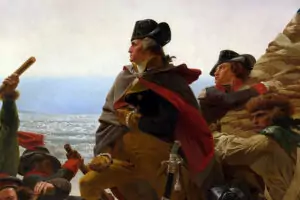![]() Great leaders are often revered and even worshipped. However, what is the secret behind their admiration? Are there certain characteristics that distinguish a leader from another person? In most cases, good leaders want those under him or her to succeed, are visionaries, are inspiring, guide others towards an outcome, and are great at self-assessment. Though there are many other qualities of good leaders that can be mentioned, these are the main ones that contribute to their position.
Great leaders are often revered and even worshipped. However, what is the secret behind their admiration? Are there certain characteristics that distinguish a leader from another person? In most cases, good leaders want those under him or her to succeed, are visionaries, are inspiring, guide others towards an outcome, and are great at self-assessment. Though there are many other qualities of good leaders that can be mentioned, these are the main ones that contribute to their position.

✅ AI Essay Writer ✅ AI Detector ✅ Plagchecker ✅ Paraphraser
✅ Summarizer ✅ Citation Generator
Though people who manage others are often self-serving, true leaders want those they work for to accomplish team goals. According to Meredith Moore Crosby from Leverette Weekes, “The jump from individual contributor to leader is a mindset shift to care about the broader organization outside of daily responsibilities. Leaders take on challenges instead of waiting for assignments. Leaders build organizations and help managers understand their function. Leaders study the organization and contribute beyond their role by developing managers” (Council, Forbes Coaches). Unlike managers, leaders are more holistic workers rather than micromanagers.
Leaders, besides wanting their teams to succeed, are also visionaries. Alan Zimmerman, with a PhD in Communication, notes that, “Many people would argue that the best CEO (maybe not the best person) of the 20th century was Jack Welch, the former chairman of General Electric. When asked for his thoughts on leadership, he echoed the same sentiment. Leadership starts with vision” (“Leaders Are Visionaries”). Real leaders seek to challenge the norm and look for fresh ideas in their sphere of work. Through these visions, they inspire their subordinates.
And speaking of inspiration, leaders are known to be profound inspirers. They can easily increase the morale of a group, and push those that are downtrodden towards a common goal. As leadership coach Kris McCrea Scrutchfield says, “A leader creates a path forward with people using curiosity to hear ideas from their perspective. They inspire themselves and others to be the best they can be while stretching beyond what’s comfortable. Being a leader begins from within, not outside ourselves” (Council, Forbes Coaches). Commonly, leaders begin by being self-inspiring. They know how to motivate themselves, and from this basis, they know how to motivate others.
In addition to motivation, leaders act as guides. Instead of being forceful with directions, leaders help others understand what they need to do complete certain tasks without being oppressive. They have the best in mind for their team, and want to bring out the best out of every individual. Another part of being a guide is that leaders are continuously examples of what to be within a company, an organization, or a team. This means that leaders need to be ethical, well-mannered, and diligent in order to impress upon his or her staff.
Despite all the amazing qualities leaders possess, they cannot do without self-assessment. According to the University of Notre Dame, “Knowing your areas of weakness does not make you weak; on the contrary, it allows you to delegate to others who have those abilities, in order to achieve the common goal. Rather than clinging to the false belief that they can do it all, great leaders hire people who complement, rather than supplement, their skills. Working on your areas of weaknesses will improve your leadership ability – and recognizing them makes you more human” (“What Makes an Effective Leader”). The worst thing for a leader is to get egotistic about his or her position, and to believe he or she can do it all, or that being in a position is all that matters.
Leaders come in all shapes and sizes, but there are several qualities that form what a great leader is. Commonly, competent leaders desire those under him or her to succeed, are visionary in their work and goals, are inspiring to the masses, guide others towards an end point, and are proficient in self-assessment. As mentioned before, there are many other characteristics that comprise great leaders. However, these are the main ones that appear in the majority of shining examples of leaders.
Works Cited
Council, Forbes Coaches. “What Makes A Good Leader? Key Differences Between Management And Leadership.” Forbes, Forbes Magazine, 21 Nov. 2017,
Zimmerman, Alan. “Leaders Are Visionaries.” https://www.drzimmerman.com/leadership-motivation/leaders-are-visionaries.
“What Makes an Effective Leader.” Notredameonline.com, www.notredameonline.com/resources/leadership-and-management/what-makes-an-effective-leader/#.W5o1Mp9fjCI.
Follow us on Reddit for more insights and updates.





Comments (0)
Welcome to A*Help comments!
We’re all about debate and discussion at A*Help.
We value the diverse opinions of users, so you may find points of view that you don’t agree with. And that’s cool. However, there are certain things we’re not OK with: attempts to manipulate our data in any way, for example, or the posting of discriminative, offensive, hateful, or disparaging material.